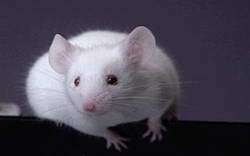Rutgers Researchers Find Fat Gene

Rutgers researchers have identified a human gene, its protein product and the way in which the protein influences how the body processes fat, discoveries that may lead to drugs to control obesity and promote weight loss.
The so-called "fat gene" carries the code for lipin, a protein that is a key fat-regulating enzyme in metabolism, said George M. Carman, a professor in the department of food science.
This scientific detective story began in 1989, when graduate student Yi-Ping Lin purified a small amount of a yeast enzyme known as PAP, a protein catalyst required for the formation of fats. At that time the technology was not refined enough to determine the enzyme’s sequence and identify its gene, so the project was shelved.
While cleaning out a freezer last summer, Carman’s crew found some of the PAP enzyme that had been purified in 1993 by another graduate student, Wen-I Wu. “Because we now had the technology, my postdoctoral associate Gil-Soo Han was able to get a sequence of the amino acids in PAP this time around,” Carman said.
Previous studies with mice have shown that a lack of lipin causes a loss of body fat and that excess lipin promotes extra body fat. So scientists knew that lipin was involved in fat metabolism; they just didn’t know how.
Carman and his Cook College research team’s first revelation that lipin might be targeted for control of body fat came with the discovery that the protein is a PAP enzyme. Since they had worked out the sequence of the amino acids that make up the yeast PAP enzyme, they were able to backtrack along the path to its origin – the gene that coded it – linking the enzyme to the yeast gene PAH1 that made it.
“This is a big breakthrough because for years no one was able to get the gene for PAP and prove that it was important in making fat,” Carman said. Carman said the discovery could have implications for treating conditions that range from obesity to the loss of fat beneath the skin, as seen in HIV patients.
The findings are published in the Journal of Biological Chemistry. The research was funded by the National Institute of General Medical Sciences (NIGMS), part of the National Institutes of Health, and the New Jersey Agricultural Experiment Station.
Source: Rutgers, The State University of New Jersey
















